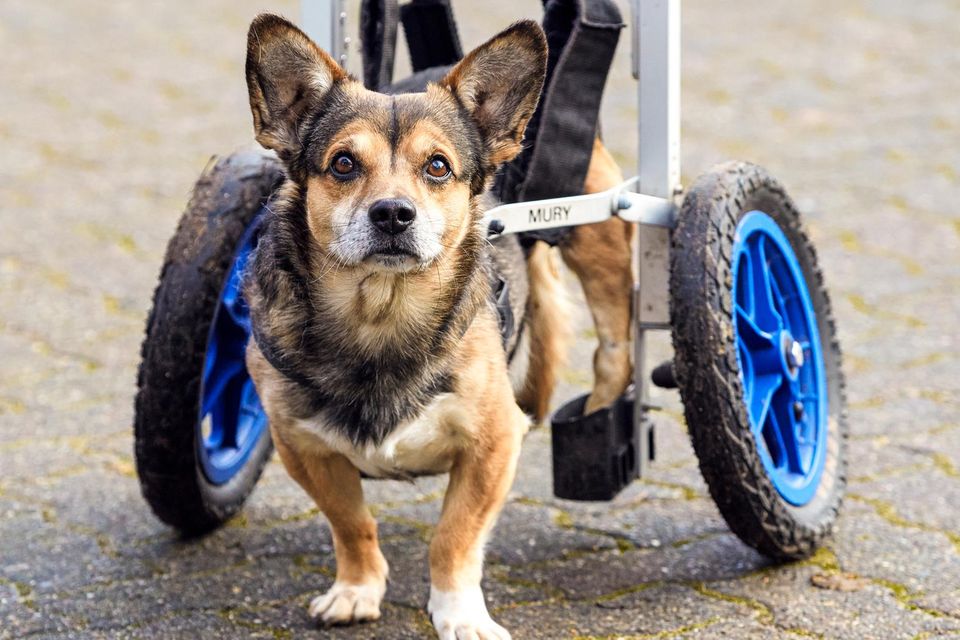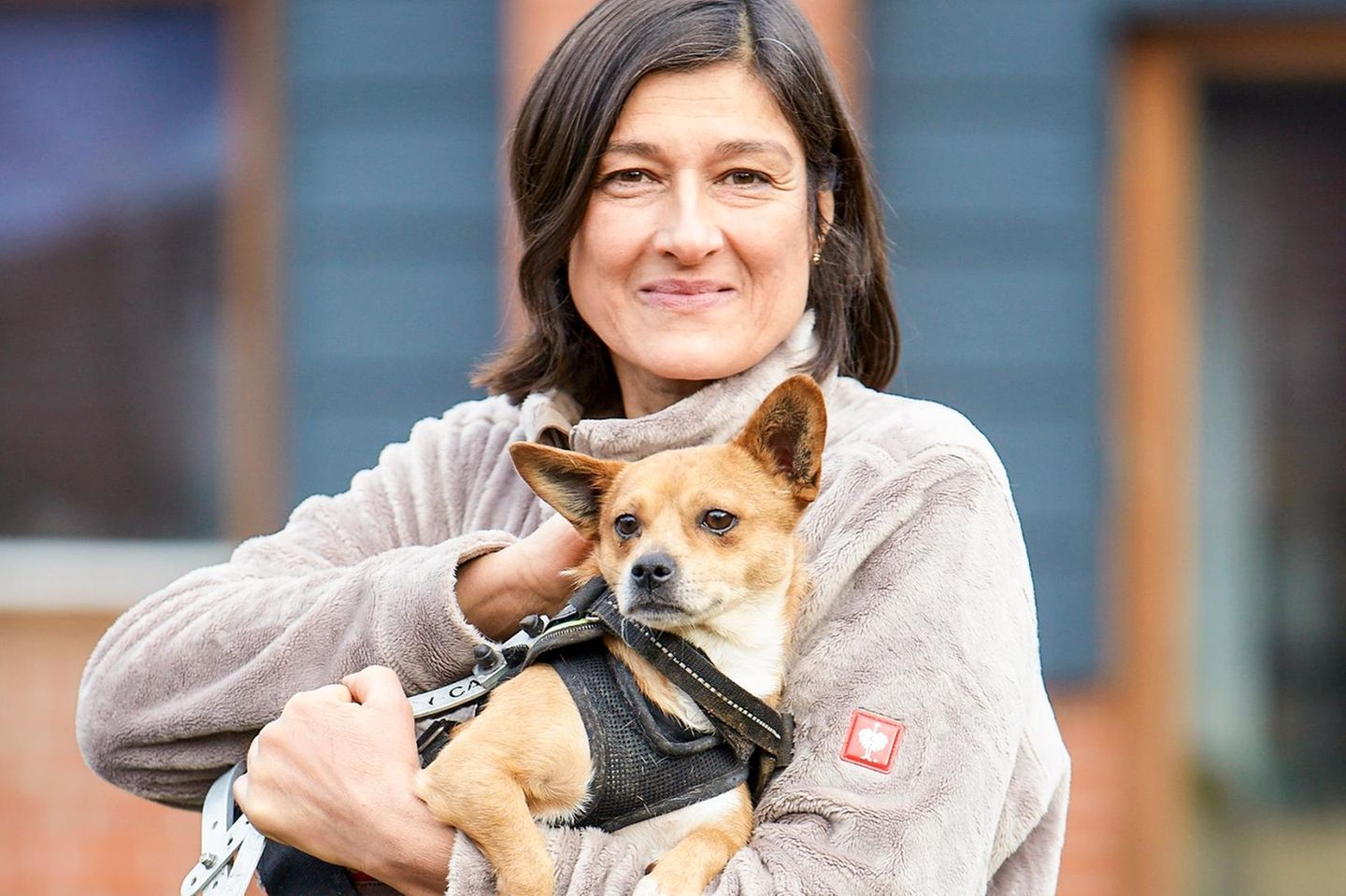Usha Peters
This woman makes wheelchairs for dogs with disabilities
© Ilona Habben
What she does: save lives. Their motto: Being a dog is nice even with two legs. What she used to think: You don’t have time for pets!
Shadow is a good answer to the question of why. The German Shepherd mix races across the yard in his wheelchair at breakneck speed and runs over a few feet in his joy. Shadow’s hind legs are paralyzed due to a vertebral malformation; but because the wheels do their job, it’s easy for him to romp around. Usha Peters smiles. She knows about Shadow’s effect on visitors to her animal sanctuary. After his appearance, hardly anyone doubts that a dog’s life in a wheelchair is valuable – and with it Peter’s commitment.
On the “De Hun’nenhoff” she founded on the edge of the Lüneburg Heath is currently home to 102 dogs: a colorful mix of Romanian street dogs, attack dogs who have become conspicuous and 30 wheelchair users like Shadow. There are also 14 cats, a dozen horses and sheep and lots of poultry. 33 employees and just as many volunteers look after the animals on the 47,000 square meter site. “Such dimensions were never planned“, says Peters. “Actually, I’ve always just wanted a dog.”
The 58-year-old is a human geneticist and has been treating people with hereditary diseases in her group practice in Hamburg since 2002. Your working days are often packed, Peters therefore doubted for a long time whether she really had enough time to have a pet. But then she discovered a picture of a shaggy terrier dog without hind legs at an international animal protection organization that no one else wanted. And she gave it a try: in 2005, Lia moved in with her.
Two wheels started
The dog initially hopped around the apartment as if in a push-up. Wheelchairs for four-legged friends were hardly known in Germany at the time. Peters didn’t want to accept that. She found a hobbyist who built her a dog wheelchair with two wheels and a holder for the back. At first Lia was skeptical. Peters had to lure her with treats for four months, then the dog bolted for the first time. From then on the two of them roamed through the forest every day.
Soon two more hard-to-place dogs moved in with Peters. When she asked a dog school for support in training the animals, she met the dog trainer Tom Bode. He had three dogs of his own and a penchant for complicated cases. They became friends – and were soon offered the first dogs that were considered dangerous or had a disability.
First they wanted to find a new home for everyone. But the placement was difficult, so they founded “De Hun’nenhoff” in 2006. Initially as a couple, with a few dogs, financed out of our own pockets. They have had a constantly growing team since 2015, and there has been a foundation behind the farm since 2018. The operation costs 800,000 euros per year, only part of which comes from donations. Peters and Bode are still responsible for most of the work – and in addition to their busy professional lives, they also do a lot of other things.

Hope on wheels With the help of rolling frames, the dogs on the farm with walking disabilities can lead an almost normal life
© Ilona Habben
It is a life’s work
Of course, this isn’t a permanent solution, says Peters, who lives in a trailer on the site and prefers to save on herself rather than on her animals. “Sooner or later we will have to downsize.” She is already unable to take in any more animals, despite daily requests from owners, veterinarians or veterinary offices.
Only with wheelchair dogs does she sometimes become weak. For them, this is not only their life’s work, but also a unique selling point of the farm: In addition to the animals taken in, there is also a boarding facility for dogs with disabilities and a rehabilitation program for everyone who can no longer walk after a herniated disc or accident.
Around 30 wheelchairs are manufactured for the farm every year. The dogs can practice driving and their owners can learn how to express the animals’ bladders. Inquiries are now coming from all over Germany. Peters has observed that dogs with disabilities are euthanized less often these days. Instead, the owners looked for ways to make their lives worth living. It’s quite possible that this is also thanks to Usha Peters.
